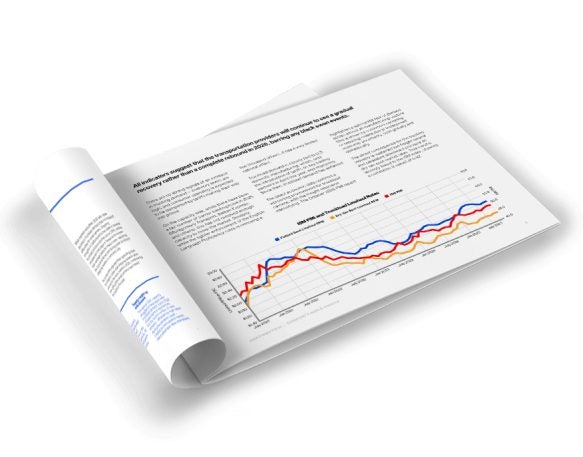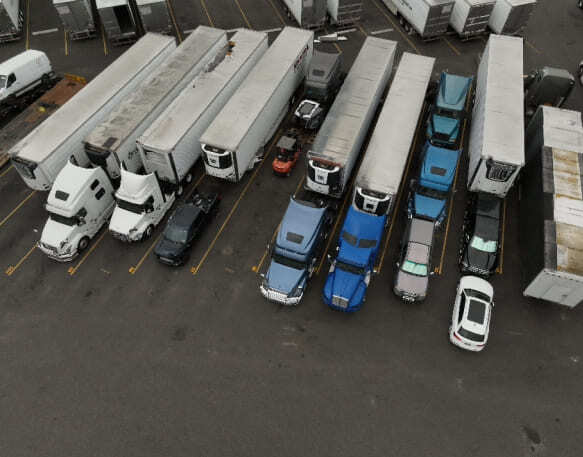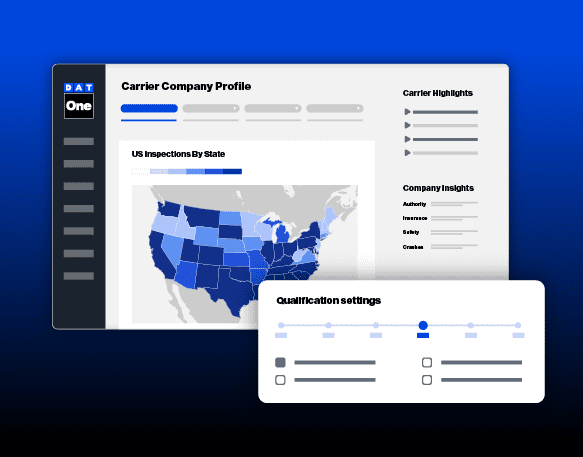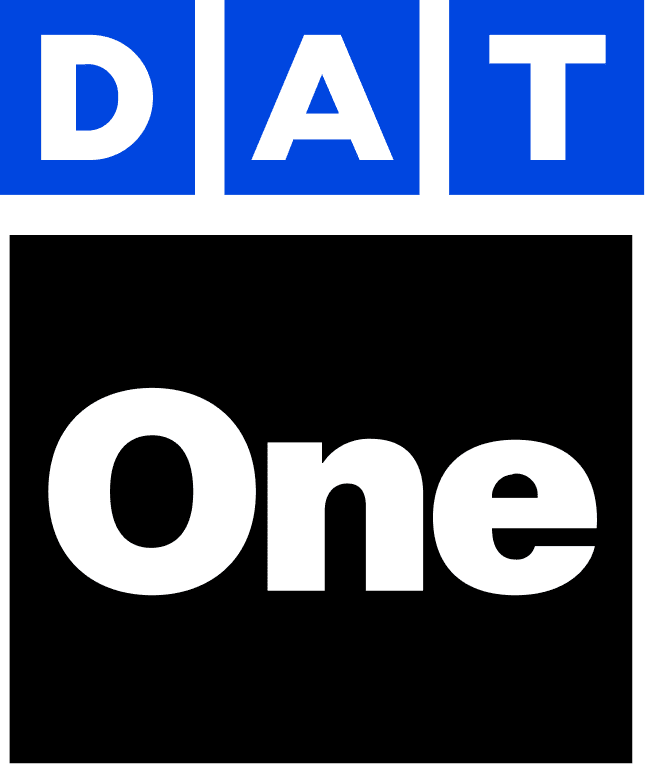
Top picks for best trucks for Owner-operators
Finding the right truck for your business is one of the most important decisions you’ll make as an owner-operator. The ideal truck will vary depending on the unique needs of your operation. Rather than a universal best brand or model for all drivers, there are many different types of trucks on the market—all catering to different needs and preferences. Which will be best for you depends on your own preferences as well as the type of work you need it to do. Choosing the best truck for you will depend on your individual needs as well as the specific demands of the work you do.
Whether you’re purchasing your first truck as an owner-operator or upgrading to the newest model for your business, here are some considerations to keep in mind.
Key considerations for owner-operators
When choosing the best truck for owner-operators, performance, fuel efficiency, and comfort are key. Owner-operators rely on their vehicles to deliver consistent performance, navigate challenging terrains, and maximize fuel savings to enhance their bottom line. Additionally, comfort and ergonomics are essential to your satisfaction and well-being during long hours on the road.
Here are some other factors you may want to consider to determine whether that the truck you have your eyes on ticks the right boxes for your needs as an owner-operator:
- Warranty
- Safety and reliability
- Up-front cost
- Life span
- Resale value
- Engine power
- Drivetrain specification
- Carrying capacity
- Cab size and type
- Style and design
Our top picks for the best trucks for owner-operators
Peterbilt, Mack, Volvo, International, Freightliner, and Kenworth—these brands are known as some of the best trucks for owner-operators. When it comes to selecting the best truck for your business, you’ll want to consider these six industry-leading brands, which are known for their quality, reliability, and performance:
Peterbilt
Peterbilt is synonymous with style and reliability. This brand’s trucks are easily recognizable due to their distinctive long-nose design, making them a symbol of American trucking heritage. With a focus on solid engineering and customizable options, Peterbilt trucks are often favored by owner-operators who prioritize style and performance. Models like the 579 offer a blend of engine performance and driver comfort.
Pros
Reliability: Peterbilt is known for their robust construction and engineering prowess, making their trucks reliable companions for long-haul journeys.
Customization: Peterbilt offers a wide range of customizable options, allowing truckers to tailor their rigs to their specific needs and preferences.
Dealer network: With a widespread network of dealerships across the country, Peterbilt ensures that truckers can access timely service and support wherever they go.
Cons
Truck sway: Some models may experience sway while driving, which might point to issues like worn suspension or brake problems.
Aluminum body: While corrosion-resistant, Peterbilt’s aluminum bodies may not be suitable for heavy-duty applications compared to steel-bodied trucks.
Higher price: Compared to some competitors, Peterbilt trucks can come with a higher price tag, which may not be ideal for budget-conscious truckers.
Mack
Mack is one of the oldest truck brands. While it has a long-standing reputation for durability and ruggedness, Mack’s market share has declined in recent years, with some truckers expressing concerns about the reliability of its engines over long distances. However, Mack trucks remain popular for a variety of hauling applications and are appreciated for their durability and robust design.
Pros
Durability: Mack trucks are known to excel in applications like heavy-duty hauling and construction, with a reputation for withstanding tough conditions and heavy loads.
Historical legacy: With a legacy dating back to 1900, Mack has a reputation for toughness that appeals to truckers who value tradition.
Advanced technology features: Mack’s real-time monitoring service GuardDog Connect is a software that helps drivers detect potential issues with their equipment early.
Cons
Limited long-distance capability: Mack trucks are designed primarily for short-haul vocational markets, which may not make them the best choice for long-distance hauling.
Engine performance: Mack engines may not offer the same level of torque and performance compared to other competitors, particularly on steep inclines.
Volvo
Internationally recognized for quality and innovation, Volvo trucks are celebrated for their safety, fuel-efficiency, and advanced technology. With a focus on aerodynamics and performance, Volvo’s heavy-duty trucks offer good performance and fuel efficiency. Models like the VNL line feature cutting-edge steering technology and industry-leading parts, making them ideal for owner-operators who value performance.
Pros
Safety: With advanced features like dynamic steering, Volvo trucks are known for being easy to maneuver and drive.
Fuel efficiency: Volvo engines are known for being light-weight and fuel-efficient, making them an economical choice for long-haul operations.
Environmental sustainability: Volvo’s commitment to environmental sustainability, including offering natural gas fueling in most new trucks, appeals to truckers who prioritize eco-friendly solutions.
Cons
Higher repair costs: Despite their global success, Volvo trucks have a smaller market share in the US, which may impact the availability of parts and service in certain regions and make repair costs more expensive compared to some competitors.
Engine performance: While Volvo trucks offer fuel efficiency, some truckers may find their engines lack the torque needed for heavy-duty hauling, particularly on challenging terrain. This may be less true for new models that feature Cummins engines.
International
Recognized for their power and performance, International trucks like the Lonestar also prioritize driver comfort. With a focus on visibility, maneuverability and aerodynamics, they are known for delivering an enjoyable driving experience.
Pros
Power and performance: International trucks are known for their power and performance, making them well-suited for heavy-duty hauling and long-distance journeys.
Driver comfort: Features such as improved visibility and handling offer a pleasant driving experience.
Safety: International is known for advanced safety features, including collision mitigation through adaptive cruise control and advanced seat technology.
Cons
Reliability concerns: Some drivers express concerns about the brand’s use of in-house axles in transmission systems, while most of their competitors source these parts out of house.
Freightliner
Freightliner stands out with the highest market share in the US truck market, showing that it is the favored brand of many transport companies and owner-operators. This brand is known for their comfortable cabin design, maneuverability, and great aerodynamics that can help you save on operating costs due to fuel efficiency. Models like the Cascadia offer exceptional fuel efficiency, powerful engines, and driver-centric features.
Pros
Noise reduction: Freightliner is noted for its focus on noise reduction in the cab, an advantage for truckers who sleep in their trailers.
Affordability: Prices for Freightliner trucks are often lower and more accessible than those of competing brands.
Fuel efficiency: Known for their aerodynamic efficiency, Freightliner trucks deliver great fuel efficiency on the road.
Cons
Resale value: Due to their high market share, Freightliners may have lower resale values compared to other brands.
Maintenance backlogs: High demand for Freightliner trucks can lead to longer wait times for repairs and service.
Kenworth
Kenworth is renowned for its high-quality trucks and innovative features. With a focus on durability, performance, and driver comfort, Kenworth trucks are a trusted choice among long-haul truckers and fleet operators alike. The brand’s lineup includes a variety of models tailored to different applications, ranging from heavy-duty to vocational trucks.
Pros
Reliability: Kenworth trucks are known for their reliability, with a reputation for durability and lower operating costs compared to some competitors.
Customization: Kenworth offers extensive customization options, allowing truckers to tailor their rigs to their specific preferences and requirements, ensuring a personalized driving experience.
Industry experience: Kenworth’s extensive experience in the industry, coupled with input from experienced drivers during the design process, ensures that their trucks are well-suited to meet the needs of modern truckers.
Cons
Heavier build: Kenworth trucks are known to have a heavier build compared to some competitors, which could impact fuel efficiency and overall performance, particularly for long-distance hauling.
Higher cost: Kenworth trucks tend to be more expensive than some other brands, which may not be ideal for budget-conscious truckers looking for a more affordable option.
Cost analysis
Truck prices will vary significantly based on make, model, size, age, optional extras and customized features, and other factors. But remember that when considering the cost of trucks, your choice is not just a question of a simple price tag. Owner-operators must balance their initial investment with long-term value and return on investment (ROI) of their vehicle. While some models may have a higher upfront cost, you should evaluate factors such as fuel efficiency, maintenance costs, and resale value to determine the overall cost-effectiveness of each option.
Maintenance and service
Make sure you also understand the impact of maintenance and repairs on your long-term ROI, as well as what your warranty covers. Maintaining your truck is crucial to ensure its longevity. It’s important to set aside some of your earnings for regular maintenance as well as unexpected repairs. Well-maintained trucks are both safer and more cost-effective for your business over the long haul. Plus, a well-maintained truck means minimal downtime, ensuring maximum productivity on the road.
When purchasing a truck, consider how easy maintaining and servicing it will be on the routes you’ll be driving. Are parts for this model readily available where you haul? Is the market saturated with this particular model, meaning that you may experience longer service wait times? It can also be a smart choice to buy a brand that has a well-developed service network in the region where you operate.
Industry perspectives
When purchasing a truck, experienced professionals will tell you to consider more than just your budget. While initial costs are important, also consider long-term maintenance and operational expenses. Factor in what type of freight you’ll be hauling, the length of your routes, the type of geography you’ll be traveling, such as mountainous vs. flat roads, and the truck’s fuel efficiency.
Those in the industry recommend considering the following key factors:
- Driving routes: Tailor your truck selection to the type of routes you’ll be driving. Short-haul routes may benefit from different specifications compared to long hauls.
- Engine power: Make sure the engine power of your tractor matches your hauling needs. More horsepower is essential for heavy loads and challenging terrains.
- Fuel efficiency: Fuel costs will be a significant part of your owner-operator business expenses. Opting for a truck with excellent fuel efficiency can mean substantial savings in the long term.
Balance your budget with the truck’s features and capabilities to make sure you’re investing in the best truck for your owner-operator business. By keeping these considerations in mind, you can make an informed decision that aligns with your business needs and select the right truck to maximize your profitability and support your success.
Clarifying the best truck vs. the best semi-truck
In the trucking industry, the term “truck” often encompasses various types of vehicles, including those typically referred to as semi-trucks.
Trucks are designed to handle a range of loads and can be classified into various categories based on size, weight, and purpose. While the general public might refer to larger vehicles as “semi-trucks,” within the trucking community, the term “truck” is more widely used and understood.
Owner-operators should consider the types of freight they plan to transport when choosing their vehicle. For example, if your focus is on hauling large loads over long distances, investing in a truck designed for heavy-duty performance can enhance efficiency and profitability. Conversely, if you’re looking to handle lighter loads or operate in more urban settings, a smaller truck may be more suitable.
By focusing on the right specifications and understanding the capabilities of different truck types, you can align your vehicle choice with your operational goals. This approach will help you capture the demand in the market and maximize your success as an owner-operator.
Selecting the right truck and maximizing success with DAT
Choosing the right truck is a pivotal decision for any owner-operator, as it directly impacts business efficiency, profitability, and comfort during long hauls. Throughout this article, we have explored a range of trucks tailored to different business needs, emphasizing key factors such as performance, fuel efficiency, and comfort. Each brand—from Peterbilt to Kenworth—offers unique advantages and considerations, helping you to determine the best fit based on your specific requirements.
However, selecting the right truck is just the first step. To truly unlock the potential of your investment, you need access to the best-paying loads that match your routes and hauling capabilities. That’s where DAT’s load board comes in. With the largest freight network in North America, DAT helps owner-operators find the loads that keep their trucks moving efficiently and profitably.
By combining the right truck with the DAT load board, you can streamline your operations, minimize downtime, and maximize your success on the road. Leverage DAT’s extensive database of over 267 million posted loads and trucks annually, and position yourself to seize the most lucrative freight opportunities across the continent. Let DAT be your partner in optimizing your routes, reducing empty miles, and growing your trucking business.
FAQs
A few things you might be asking yourself
An owner-operator in trucking is an independent driver who owns and operates their truck. They are responsible for choosing the loads they haul, maintaining their vehicle, and managing the profitability of their business by aligning their truck’s capabilities with their operational goals.
The best truck for an owner-operator depends on individual business needs and preferences. Key factors to consider include performance, fuel efficiency, and comfort. Popular truck brands known for reliability include Peterbilt, Mack, Volvo, Freightliner, Kenworth, and International. Each brand offers different benefits, so the best choice will vary based on your specific operational requirements.
Trucks like Peterbilt and Kenworth are often recognized for their durability and strong construction, making them a popular choice for owner-operators seeking reliable vehicles. Maintenance is a significant factor in reducing mechanical issues, so selecting a truck from a brand with a strong dealer network and readily available parts is important for long-term performance.
Owner-operators hauling high-demand freight on profitable routes tend to earn the most. Success also depends on factors such as choosing fuel-efficient trucks to reduce costs and utilizing tools like load boards to find high-paying loads that match your routes.
High-value freight, specialized loads, and long-haul routes tend to offer the highest pay. To maximize earnings, focus on matching your truck’s capabilities—such as engine power and carrying capacity—with the specific requirements of these loads. A comprehensive load board can help identify the most profitable opportunities.
Owning your own semi-truck can be a worthwhile investment when approached strategically. Factors like selecting a reliable, fuel-efficient truck, maintaining it well, and securing high-paying loads all contribute to profitability. Although the upfront costs may be significant, these can be balanced with long-term savings and the opportunities ownership offers.
Maximize Success with DAT
Unlock your trucking business’s full potential with the DAT load board. Gain access to over 267 million loads and trucks posted annually and find the most lucrative freight opportunities across North America.




